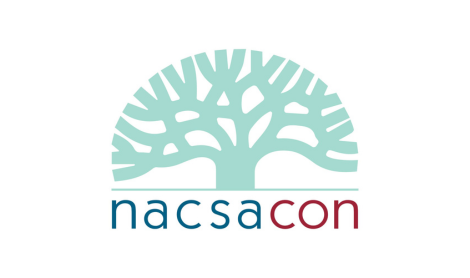NACSA Blog
Press Releases
 |
NACSA President and CEO Greg Richmond Remembers Donald Fisher, Gap Inc. Cofounder and Charter School AdvocateThe National Association of Charter School Authorizers (NACSA) President and CEO Greg Richmond released the following statement today in response to the death of Donald Fisher, Gap Inc. Co-founder and Charter School … |
 |
New Study Sets Priority Areas and Recommends Strong Standards So All St. Louis Students Have Access to a Quality EducationSt. Louis, MO – The National Association of Charter School Authorizers (NACSA) and IFF, in conjunction with the St. Louis Mayor’s Office, released a new study today analyzing the performance, location, and … |
 |
NACSA President Applauds Findings of New Survey on New Orleans Charter SchoolsA new survey of New Orleans citizens has found that they strongly support charter schools and education reform efforts in the aftermath of Hurricane Katrina. The survey, conducted by the Council for … |
 |
NACSA President Appointed to Aspen Institute’s Commission on No Child Left BehindNational Association of Charter School Authorizers (NACSA) President and CEO Greg Richmond was selected today to serve as a Commissioner on The Aspen Institute’s Commission on No Child Left Behind. Richmond, an … |
 |
NACSA Announces $9.4 Million in Grant FundingThe National Association of Charter School Authorizers (NACSA) announced today that it has received $9.4 million in investments from three of the nation’s preeminent foundations — the Bill & Melinda Gates Foundation, … |
 |
NACSA Names Elisa Westapher Chief Development & Business OfficerM. Karega Rausch, Ph. D., president and CEO of the National Association of Charter School Authorizers (NACSA), announced today that Elisa Westapher will serve as NACSA’s chief development and business officer. “NACSA … |
 |
Statement from M. Karega Rausch, Ph. D., NACSA President & CEO on the recent Supreme Court decision to deny certiorari in Peltier vs. Charter Day SchoolThe decision by the United States Supreme Court to not take up the Peltier vs. Charter Day School case means the ruling from the U.S. Court of Appeals for the Fourth Circuit … |
 |
New CREDO Study Affirms Authorizing’s Role in Transforming Public EducationNACSA’s work to strengthen the ideas and practices of authorizing so communities—especially those historically under-resourced—thrive was affirmed in the new National Charter School Study III 2023 from the Center for Research on … |
 |
NACSA statement on St. Isadore application in OklahomaThe decision from the Oklahoma Statewide Virtual Charter School Board (SVCSB) to approve an application to establish the St. Isidore of Seville Catholic Virtual School as a religious charter school is inconsistent … |
 |
NACSA Statement on U.S. Solicitor General Brief on Peltier v. Charter Day SchoolThe National Association of Charter School Authorizers (NACSA) agrees with the recent brief from Solicitor General Elizabeth Prelogar who affirmed that charter schools are public schools. The Solicitor General’s brief is consistent with the ruling from … |
 |
Helping You Bust 3 Charter School MythsAuthorizers play a critical role in working with communities to create those opportunities where students thrive. That’s why NACSA is committed to a more diverse, thriving profession resulting in better and more … |
 |
Why You Should Attend NACSACon 2023NACSACon is more than just an authorizing conference; it is a leadership conference. Whether you’ve been in charter school authorizing for 20+ years, or are just starting out, the content at NACSACon … |
 |
2023 Performance Framework GuidancePerformance Frameworks are the accountability mechanism at the center of the charter school/authorizer relationship, and Performance Frameworks are the means by which authorizers establish performance expectations for schools that are responsive to … |
 |
Nexus at NACSAPractice + People = Excellence For more than two decades, NACSA has been the leading source for authorizing best practice, backed by research and experience. And as schooling evolves, authorizing is also … |
 |
2023 Version of Principles and Standards2023 version of Principles & Standards is here! High-quality, innovative, and equitable educational opportunities that communities are rightly demanding have never been more important. Yet even as we emerge and seek to recover well … |